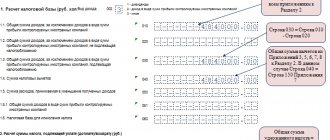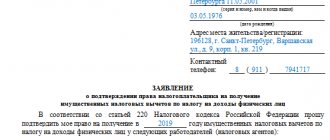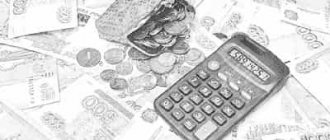Home/Returns and exchanges/Medicines
Medicines are included in the product group controlled by the state. By law, exchanges or returns of medications after purchase from a pharmacy chain are allowed only for limited reasons. Even if you are disappointed in the drug before leaving the pharmacy, having learned about the contraindications, it will be difficult to return or exchange it.
For your information
However, there are legal reasons that make it possible to return the purchased drug, exchanging it for another drug, or return the money for the purchase. This opportunity is provided by the law on the protection of consumer rights in relation to the circulation of medicines.
Normative base
The ban on the return of pharmaceutical drugs is fixed in Government Decree No. 55 of January 19, 1998.
Attention! If you have any questions, you can chat for free with a lawyer at the bottom of the screen or call Moscow; Saint Petersburg; Free call for all of Russia.
The Law of the Russian Federation dated 02/07/1992 No. 2300-1 “On the Protection of Consumer Rights” allows for the return of drugs to the pharmacy for some reasons. You can return the drug for the following reasons:
- if the drug does not meet the required quality;
- if there are special characteristics of the drug that do not suit the buyer or violations of trade rules.
The right to return medicines is reflected in the Industry Standard OST 91500.05.0007-2003 “Rules for the dispensing of medicines in pharmacies” as amended by the Ministry of Health of Russia on January 30, 2004 by Order No. 31, clause 6.15.
Let's consider what circumstances and reasons make it possible to return purchased medications to a pharmacy.
About recipe forms
In prescriptions, the names of drugs are displayed in Latin, and the method of using the medicine must be indicated in Russian, and general phrases like “internal” are unacceptable. It is allowed to prescribe medications only on prescriptions issued on forms No. 148-1/u-88, No. 107-1/1, No. 148-1/u-04 (l) or No. 148-1/u-06 (l).
When writing prescriptions, doctors follow the procedure prescribed in the order of the Ministry of Health dated January 14, 2019 No. 4n. Recipes can be made on the computer. You cannot make changes to recipes; if an error is made, it is better to fill out a new prescription form.
For more information about handling strict reporting forms, read the material “Procedure for recording and storing strict reporting forms” .
To confirm that the purchased medications were prescribed by a doctor, the taxpayer must be prepared to present a prescription, which will be marked with an indication of the payer’s tax number. Such a prescription is issued on the basis of the order of the Ministry of Health dated July 25, 2001 No. 289/BG-3-04/256 (Appendix 3).
In accordance with the order of the Ministry of Health dated January 14, 2019 No. 4n, form No. 148-1/u-88 is used for discharge:
- psychotropic drugs from List III or registered medications (and narcotic and psychotropic drugs from List II are prescribed on a special prescription form in Form 107/u-NP);
- anabolic steroids;
- medications with low contents of narcotic and psychotropic drugs (precursors);
- individually prepared medicines containing narcotic substances and psychotropics from list II in a small dose (not more than the highest single dose).
On forms No. 148-1/u-04 (l) and 148-1/u-06 (l) medications are prescribed for free receipt, as well as for citizens entitled to a discount.
The following medications are prescribed on prescription form No. 107-1/u:
- subject to control, which, in addition to small psychotropic and narcotic doses, contain other pharmacological components;
- all other medications not listed above.
The validity period of issued prescription forms varies - from 10 days to 3 months (noted by the doctor). Completed prescription forms in form No. 107-1/u are valid for 2 months, and in special cases (for chronic diseases) - up to a year. The standard deadline for each of the forms is indicated in clause 21 of the procedure approved by Order of the Ministry of Health dated December 20, 2012 No. 1175n.
It is also important to pay attention to the fact that on the completed prescription form, at the top left, there is a stamp of the medical institution indicating all its contact information. On the forms No. 148-1/u-04(l) and No. 148-1/u-06(l) there is a space allocated for applying a special code. You can decipher the recording yourself if you read clause 5 of Appendix 3 of Order No. 1175n of the Ministry of Health dated December 20, 2012.
A prescription on forms No. 148-1/u-04(l) and No. 148-1/u-06(l) is drawn up by a doctor on 2 identical forms (same numbers and series): one is issued to the patient - for the pharmacy, and the second - remains in the medical record. At the pharmacy, notes are made on the prescription about the dispensing of medications in full/incomplete quantities. The entry is dated.
Due to the fact that for a large number of medications that are purchased with patients’ money, prescription form No. 107-1/u has been established, it is this prescription that is recommended to be written out in order to receive social benefits. A prescription in form No. 107-1/u for tax authorities can be issued by the attending physician at the request of the taxpayer within 3 years after the end of the tax period (calendar year) in which expenses for the purchase of medicines were incurred, indicating the date of the actual prescription of the medicine. Such prescriptions are issued on the basis of entries made in the medical record (letter of the Ministry of Health of the Russian Federation dated February 12, 2002 No. 2510/1430-02-32).
What medications cannot be returned to the pharmacy?
It is impossible to return a purchased drug back to the pharmacy if a defect or deficiency appears, the culprit of which is the buyer himself. For example, if you:
- opened the package, tore off the label;
- violated its marketability by denting the packaging;
- the drug was partially used.
Attention
Based on the List contained in Government Resolution No. 55 of January 19, 1998, it is impossible to return medical goods: metal, rubber, textile and others related to sanitation and hygiene, as well as other hygiene products and other medicinal products (according to the wording of the Resolution Government of the Russian Federation dated October 20, 1998 No. 1222).
Is there a deduction for medications?
Tax deductions for medicines are provided in accordance with subparagraph.
3 p. 1 art. 219 of the Tax Code of the Russian Federation. To receive a deduction for periods before 2021, it is necessary that the drugs be present on the government list (Decree No. 458 dated 04/08/2020). Starting from 2021, the requirement for drugs to be on the list of the Tax Code of the Russian Federation has been removed. Therefore, deductions for periods from 2021 onwards (that is, already now, if you receive a deduction for 2020 at work) can be obtained not only for drugs from the specified list, but also for all drugs prescribed by the doctor. The amount of social deduction annually can be the amount paid for medicines, but there is a maximum of 120,000 rubles. in year. That is, in a year you can return no more than 15,600 rubles from the budget. (13% of the maximum of RUB 120,000).
Important! The deduction for expensive treatment is not limited.
You can find out what limits are set for deductions here.
However, the taxpayer cannot claim a refund in the form of a social tax of a larger amount than was paid in personal income tax for the calendar year. Moreover, if you contact the tax authority, the money spent on medicines can be returned only next year after submitting a declaration based on its results. In 2020–2021, you can receive such a deduction from your employer without waiting for the end of the year in which medical expenses were incurred.
What social deductions can you get from your employer? What documents will be needed? Sign up for a free trial access to ConsultantPlus and study the recommendations prepared by K+ experts.
It is important that the medications were prescribed by the doctor who treated the patient and were purchased at the patient-taxpayer’s own expense. If the employer paid for the medicines, a deduction for this amount is not provided.
Read about what other personal income tax deductions there are here.
Let us remind you! You can receive a deduction for the 3 years preceding the year of filing 3-NDFL. That is, in 2021, when filing 3-NDFL for 2021, you need to take into account the list of approved medicines for applying for a social deduction.
Let's look at what medications are included in this list in more detail.
Why can't I return the medicine at the pharmacy?
If the buyer incorrectly informed the pharmacist about the name of the product, or its price is higher compared to analogues, and this became clear after the purchase, then it cannot be returned, because the fault lies entirely with you.
IMPORTANT
It is impossible to return a medicinal product to a pharmacy because this eliminates situations with drug substitution. This is done solely in the interests of other buyers interested in purchasing a product that has not been in someone else’s hands and has not been replaced with a useless counterfeit or generally hazardous to health.
When can medications be returned?
It is possible to return the purchased medicinal product to the pharmacy if it has significant drawbacks, which may be:
- the medicine is already expired;
- there are violations in the labeling: the expiration date and series are not indicated, there are discrepancies in these data on the packaging itself and the blister;
- instructions for use are not attached to the drug, or the description of the product in it does not correspond to the type of drug in color, smell or shape;
- there is a defect in the packaging container or the packaging itself: chips or cracks on the bottle, the cap is loosely closed or is missing at all, the pack is crumpled, etc.
In exceptional cases, pharmacists are also required to take high-quality medications that do not have the described defects. These include situations:
- When the pharmacist sold a drug that should be dispensed according to a prescription, but the buyer does not have it. You have the right to return the drug if you are not satisfied with the contraindications and side effects.
- When a pharmacist mistakenly sold the wrong product as specified in the prescription.
- When the product is unsafe and they sold it to you without warning you about it.
Is it possible to return a quality drug?
Pharmacists rarely provide the opportunity to dispense quality goods, and there are a number of reasons for this. If in the case of defective medicines there is visual confirmation of the problem, then in the case of a product without flaws, you can return it unless:
- an error occurred due to the fault of the pharmacist (he gave the drug in the wrong dosage, in the wrong form, or even the wrong drug that was needed);
- The pharmacist suggested an analogue, but the buyer was not warned about its side effects.
That is, high-quality medicines can be accepted from the buyer only if the pharmacist makes a mistake, which is not at all easy to prove.
To confirm the error, the buyer declaring a desire to return high-quality medicines must bring a witness who can confirm that the fault in issuing the wrong product lies not with the consumer, but with the pharmacist.
However, in practice, witness statements are not the most reliable source for proving the pharmacist’s guilt. Therefore, it is easier to prevent such a situation than to solve it. You should carefully look at what the pharmacist gives out, check the dosage and name, and if an analogue is recommended, inquire about the side effects and read the instructions yourself.
The buyer mixed up the name
Pharmacists are often faced with a situation where a buyer has given the name of the wrong drug that he needs, and now wants to return the product. However, no pharmacy will return money for purchased medications even if you have a receipt, especially if the medications are not defective.
You can try to refer to the fact that a detailed study of the instructions revealed contraindications according to which the medicine should not be taken. However, in almost 100% of cases there will be a categorical refusal from the pharmacist, who is right in this situation.
Pharmacist's mistake
Errors of this type occur through no fault of the buyer, which means that the latter can count on a refund or exchange of an incorrectly issued product for the correct one. The following series of mistakes made allows you to get your funds back:
- the pharmacist gave the necessary medication, but not in the dosage that was necessary;
- the wrong form of supply was issued (for example, ampoules, not tablets);
- a medicine with a similar name was sold, but not what was required.
Having a prescription in hand, it will not be difficult to return the money for the drug - you just need to present it to the pharmacist.
If there is no prescription, the situation becomes more complicated, even if the buyer presents a receipt - a witness will be needed to confirm the pharmacist’s mistake.
Return of a medicinal product of inadequate quality
You can return a low-quality medicine that has obvious defects immediately if you notice an important flaw before leaving the pharmacy. If some time has passed from the date of purchase to the time you discovered the defect, returning the drug will require an examination to determine its quality. The costs of carrying out this procedure must be borne by the seller or manufacturer of the pharmaceutical product.
For your information
When contacting a pharmacy, you must present: an identification document, a receipt, the drug itself in the packaging that was included in the sale, a bank card if you used it when paying for the product.
By law, your money must be returned to you within a week from the date of filing a claim with the pharmacy. If the product is sent for examination, the return period is 20 days.
Limitation periods for filing a claim
The protection of consumer rights and the rights themselves are described in more than one piece of legislation, but there is no certainty regarding the establishment of limitation periods.
When determining deadlines, any professional lawyer will take the legislative norms of civil law as a basis:
- the period for filing a claim for ordinary goods is 1 year;
- For most products, the right to request a return or replacement remains for a period of 24 months from the date of purchase;
- to determine the time limits, you need to refer to the warranty period, because if the limitation period is 24 months, and the warranty period is 36 months, then the claim and claim can be filed during the warranty period.
Please note! From this it is clear that specific deadlines are not established by law. To determine the limitation period, it is also worth clarifying other features of the product.
According to the law, there are 3 types of deadlines:
- guarantee period. Each product has a period during which the manufacturer guarantees its performance. During the warranty period, the consumer has the right to use the product for its intended purpose, and if defects are detected, contact the manufacturer or seller;
- best before date. The period of time during which the product must properly perform its direct functions, and if defects are detected, the consumer has the right to file a claim;
- life time. This period is set depending on the type of product; this is the period during which the seller and manufacturer are responsible for the product. There are cases where the consumer can claim damages after this period has expired.
The Law on the Protection of Consumer Rights, namely Article 17, states that the consumer has the right to file a claim if he is dissatisfied with the purchase. And also conduct inspections of this store.
To determine the period, first of all, you need to be guided by documents that indicate the warranty period or expiration date, and these documents will be evidence in court.
If the warranty period or expiration date for the product is not determined, claims regarding defects in the product may be submitted by the consumer within two years from the date of receipt of the product from the seller or for a period of more than 2 years, unless otherwise provided by the contract or the legislation of the Russian Federation.
It follows from this that the deadlines established in Article 477 of the Civil Code of the Russian Federation and Article 19 of the Law “On the Protection of Consumer Rights” No. 2300-1 are the deadlines for determining defects and defects, but not the limitation period.
How to return medicine to a pharmacy of proper quality?
To return a quality medicine, you need to contact the pharmacy where the purchase was made and present the following documents:
- your identification document (passport);
- check;
- if you paid with a bank card, you need to present it;
- If possible, statements from two witnesses to your purchase.
You also need to present the medicine itself in the form it was when sold.
Additional Information
The return procedure is similar to returning goods of inadequate quality.
Underwater rocks
The procedure for returning or exchanging medicines is difficult for consumers:
- You may be faced with an unlawful refusal to take your medications back. A pharmacist can insist that he is right, relying on the law, even when the quality of the drug does not meet the requirements.
- Proving the presence of hidden flaws is not easy. It will be necessary to conduct an examination that will show defects.
- Many citizens require the help of lawyers because they do not have sufficient legal knowledge to assert their own rights.
How to return medicine to the pharmacy without a receipt?
If a receipt for a product purchased at a pharmacy is lost, then this is not a reason (Law No. 2300-1 “On the Protection of Consumer Rights”, Article 18, paragraph 5) excluding the possibility of a return. You can confirm the purchase indirectly. It is easier to do this if you paid with a bank card. The bank statement contains information about the payment transaction made to the pharmacy account on the specified date. If the payment was made in cash, then it is better to have witnesses to your purchase.
Additional Information
Also, proof of purchasing the medicine in this pharmacy is the information on the packaging, which contains the batch of the drug and the release batch. The invoices for the goods received at the pharmacy must contain this information.
An example of a refund for medicines through social tax payments to the Federal Tax Service
In 2021, Sergei Petrovich Sidorov suffered from bronchitis and spent money on treating his mother, who suffered from high blood pressure and cataracts, on disinfectants and hormonal drugs for his 17-year-old daughter, and on “beauty injections” for his wife.
In the tax period, Sidorov earned 350,000 rubles. From this amount, income tax was withheld in the amount of 45,500 rubles.
For information on how personal income tax is calculated, read our article “General procedure for calculating and paying personal income tax .
To treat bronchitis, he bought aspirin and erythromycin prescribed by a doctor. Sidorov spent 200 rubles on medicines. For treatment, he bought amlodipine and pyrenoxine for the mother for the amount of 600 rubles, and for his daughter - chlorhexidine, iodine and betamethasone for the amount of 300 rubles. Botox injections for my wife cost 15,000 rubles.
Sidorov S.P. has the right to receive a deduction from amounts spent on medications purchased according to prescriptions for himself, mother and daughter. In total this amounted to 1,100 rubles. (200 + 600 + 300). But he will not be able to return the money spent on purchasing cosmetic products for his wife in the form of social benefits.
By submitting doctor's prescription forms, checks, copies of his birth certificate and his daughter's birth certificate along with the tax return and other documents, Sidorov will be able to claim a refund of 143 rubles from the budget. (13% of 1,100). The money will be transferred to his current account based on the submitted application.
Actions in case of refusal
If you cannot resolve the issue of returning a rejected product immediately when contacting a pharmacy and you are refused, you need to proceed as follows:
- If the pharmacy seller is not competent in resolving this issue, then you need to contact the head of the pharmacy. You can also make an entry in the book of complaints and suggestions indicating your data and describing the entire situation.
- If the specified period has expired and there is no response, you must contact Rospotrebnadzor or the Ministry of Health with a statement of claim (Details of the application are given below).
- To carry out the examination, it is necessary to prepare an application in two copies addressed to the pharmacist who sold the product or the manufacturer of the product being returned. One copy must remain with the plaintiff, the second is transferred directly to the seller or sent to him via mail with official delivery with notification.
- When transferring a medicine for research, the pharmacy staff must issue a receipt confirming its withdrawal.
The application must contain all the information that will be needed when considering your claim, including a description of the defects of the purchased drug, details of its purchase, as well as the name, address and telephone number of the seller of the product and the buyer. A statement is written addressed to the pharmacy management. It should state the nature of your requirements. If there is a sales receipt, a copy of it must be attached to the application. At the end of the application, you need to list the copies of documents attached to it and sign it with the applicant’s full name and date.
For your information
Returning a product to a pharmacy that does not have any defects is difficult for legal reasons, but it is quite possible. To do this, you need, first of all, to try to negotiate with the pharmacist who sold the product. If he does not meet you halfway and refuses to return the medicine, you need to write a claim in the complaint book with a detailed description of the situation and indicating your contact information. If there is no response within 5 days, you have the right to file an application with higher authorities and the court. The application must be accompanied by copies of documents confirming the purchase of the drug (receipt, testimony of two witnesses, instructions for using the drug, its photo, as well as a written refusal from the pharmacy, certified by the signature of the manager).
Timeframe for consideration of a claim
The seller must consider the claim regarding the tonometer and fulfill the buyer’s requirements within 10 days. If an examination is used in this case, the time for consideration is extended.
Under the terms of the claim, warranty repairs can be carried out; the legislation allocates 45 days for it. During the examination or repair, the consumer is temporarily given a device for use.
After the expiration of the specified period, the buyer who has not received satisfaction on his claim applies to the Prosecutor's Office, Rospotrebnadzor, and the Society for the Protection of Consumer Rights.
It is recommended to seek the help of a good lawyer who will help in drawing up documents and can become a representative in court if attempts to resolve the issue before the court do not yield results.
Nuances and tips
Returning medications to a pharmacy has specifics because the law primarily prohibits their return. We have considered cases when it is still possible to return or exchange medicine. The return procedure alone is a very troublesome matter, requiring time, often emotions and, if necessary, going to court.
Additional Information
Therefore, in order not to create a similar situation, you need to be especially careful when purchasing medicines, especially if they are expensive. If you are confident in your right and are ready to go through all the vicissitudes of getting a refund for an expensive drug, do as described in this article and then you will achieve the desired result.
Comments Showing 0 of 0
Return Policy
Previously, it was allowed to include only medications from the legal list; now there is no need to check with it. The main thing is to comply with the following conditions:
- All money spent is refunded for any medicines containing active ingredients.
- They must be prescribed by a doctor and described in a special form (prescription). No other papers (a piece of paper from a notepad, letterhead from paid clinics) or oral recommendations will work.
- In addition to the prescription, you must have with you all payment documents from the pharmacy confirming the fact of purchase.
- As for the list of expensive services and treatment, there have been no changes, and it is necessary to check the official list.
- Drugs not included in the legal list will have their income reduced from the beginning of 2021.
- The amount and methods of returning benefits to close relatives remained unchanged.
- The conditions for returning the subsidy through the employer and the Federal Tax Service are the same, as are the deadlines.
- To receive compensation, you must be a citizen of the Russian Federation, officially work and pay personal income tax.
- The pharmacy and clinic must have all licenses and certificates that comply with the law to conduct their activities.
For reference! It is impossible to receive a deduction for purchasing drugs without prescriptions. Only this condition was not affected by the amendments, since the Ministry of Finance and the Federal Tax Service do not have the right to do this, and the Ministry of Health does not plan such changes.






